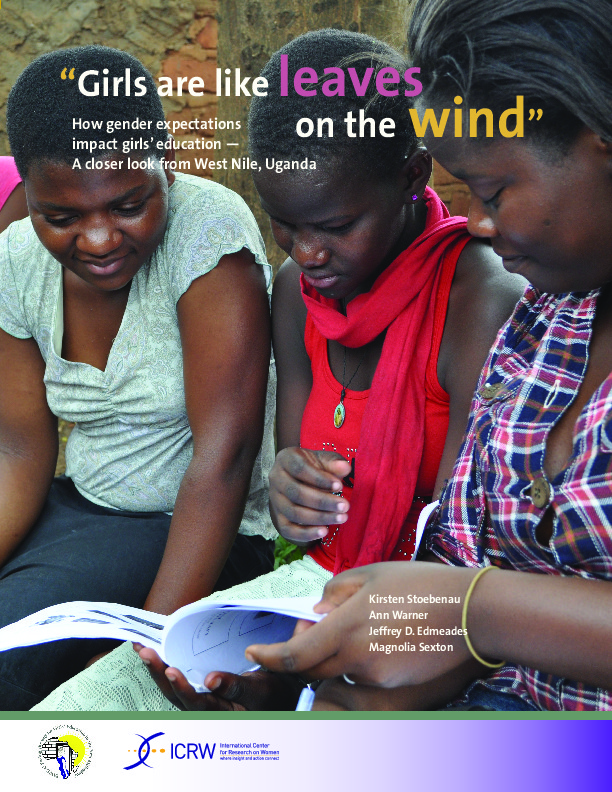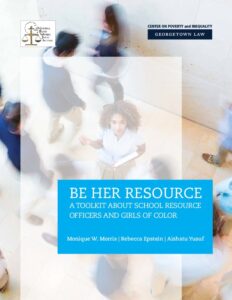Description
This report examines the factors that contribute to girls ages 14 through 18 dropping out of school in two regions of West Nile, Uganda: Adjumani and Arua. The report examines the complex factors that determine school dropout among girls, highlighting the ways in which gendered expectations and norms may influence girls’ education.
Creator
Kirsten Stoebenau, Ann Warner, Jeffrey D. Edmeades and Magnolia Sexton
Source
https://www.icrw.org/publications/girls-are-like-leaves-on-the-wind/
Publisher
International Center for Research on Women (ICRW)
Date
2015
Language
English
URL
https://www.icrw.org/publications/girls-are-like-leaves-on-the-wind/
Citation
Kirsten Stoebenau, Ann Warner, Jeffrey D. Edmeades and Magnolia Sexton, “Girls are Like Leaves on the Wind: How gender expectations impact girls’ education – a closer look from West Nile, Uganda,”


